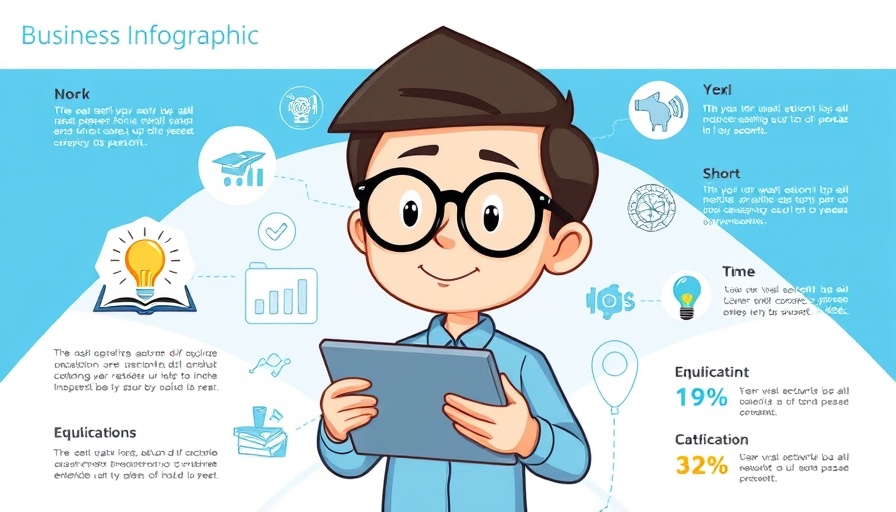
The Rapid Growth of Intellectual Education Apps
In a digital age characterized by rapid advancement and shifting paradigms, intellectual education apps are witnessing explosive growth. The intellectual education apps market, encompassing mobile and web applications designed to enhance cognitive skills and knowledge acquisition, is projected to grow from $4.6 billion in 2024 to $11.2 billion by 2032, achieving an impressive CAGR of 10.4% during this period. This surge is driven by increasing smartphone adoption, gamification trends, and an emphasis on personalized learning.
Why These Apps Matter for Your Child's Development
For parents, understanding the significance of these apps can affect their child's educational journey. The range of applications available—cognitive skills training, language learning, STEM-focused education—provides tools that aid in brain development and critical thinking. Rather than seeing them merely as escapism tools, these apps can serve as effective supplements to traditional education, offering students engaging ways to sharpen their skills.
Exploring the Types of Apps Available
The intellectual education app industry can be broadly categorized into several key segments:
- Cognitive Skills Apps: These apps focus on enhancing reasoning, memory, and problem-solving abilities.
- Academic Learning Apps: Tailored for curriculum-based learning, perhaps for subjects like math or science.
- Language Learning Apps: Tools such as Duolingo and Babbel help learners master new languages at their own pace.
- Creativity Enhancement Apps: These provide spaces for artistic and creative growth through various mediums.
- STEM Education Apps: A focus on Science, Technology, Engineering, and Mathematics through interactive content.
Each of these types plays a crucial role in developing different skills and addressing diverse learning needs, making them valuable for parents seeking opportunities for their children.
Impact on Kids and Learning Trends
The trend of gamification in education, where game-design elements enhance learning experiences, has particularly resonated with children. This approach leverages their natural inclination toward playfulness and competitiveness while fostering effective learning methods. Popular applications not only make learning fun but also allow for individualized education paths based on each child's unique strengths and weaknesses.
Parental Guidance: The Key to Balance
While technology provides vast resources, parental oversight is paramount. Parents should engage in discussions about the educational goals of using these apps. Evaluating app content for age appropriateness and aligning app usage with established screen time limits can help strike a balance between productive play and educational growth, ensuring technology serves as a beneficial tool.
Alternative Learning Resources to Complement App Usage
In addition to apps, consider alternative resources to foster learning in various contexts. Traditional books, both fiction and nonfiction, encourage imagination and critical thinking. Furthermore, engaging in offline activities like science projects, art, and physical exploration can also support learning without the tech barrier. Each parent can mix and match various learning mediums to tailor education to their child's needs.
Making Informed Decisions
The burgeoning market for intellectual education apps emphasizes the increasing role of technology in education. Yet, it is essential to make informed decisions regarding which apps to choose. Researching, reading reviews, and understanding app delivery methods can empower parents to select the best-fit tools for their children's growth. Ultimately, thoughtful engagement in your child's learning process—both online and offline—paves the way for a holistic educational journey.
As we navigate this evolving landscape, it is crucial for parents to remain informed about the tools available to support their children's learning, ensuring that both technology and traditional methods enrich their educational landscape.
 Add Row
Add Row  Add
Add 




Write A Comment